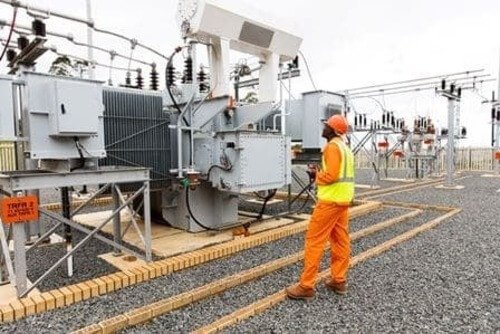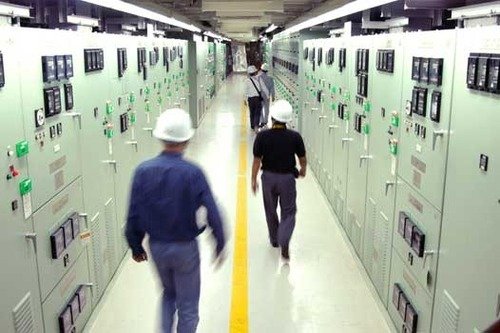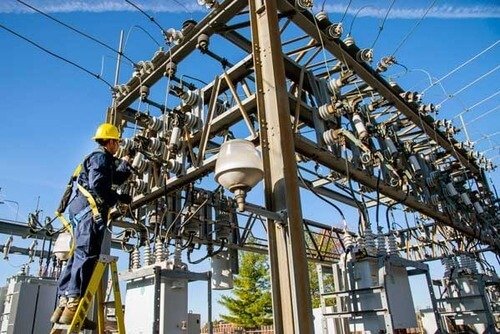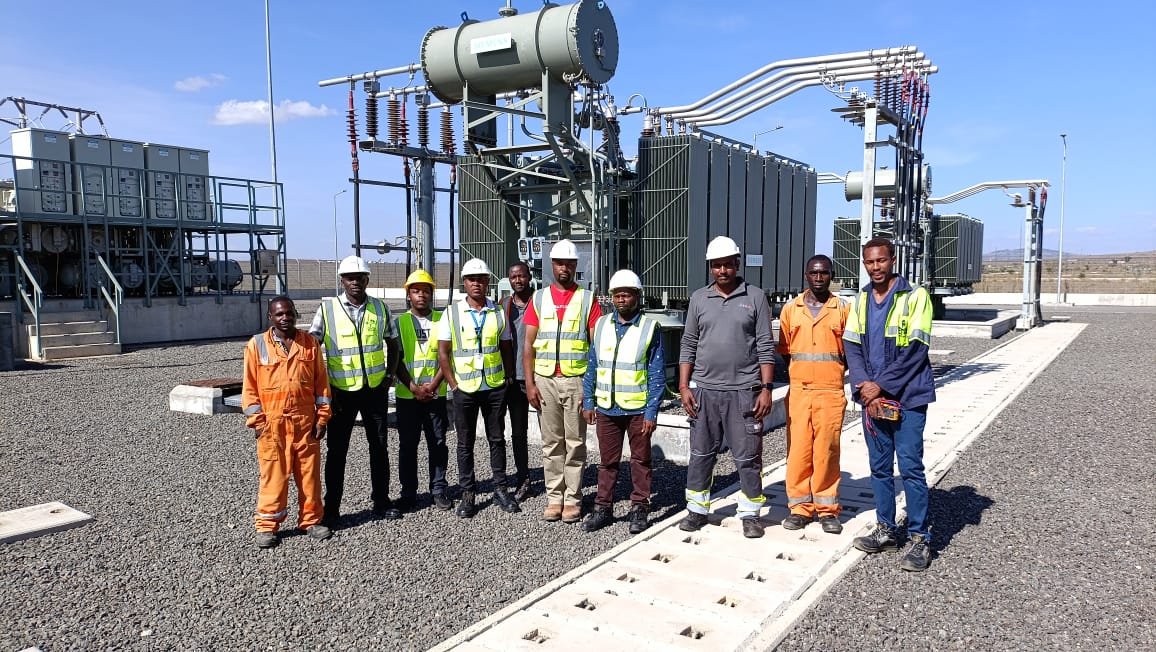The path to understanding how to become a substation technician represents one of the most rewarding career trajectories in the electrical power industry. If you are considering a career transition or you are a young engineer looking for specialization, a substation technician is worth consideration. This role requires a combination of technical expertise and hands-on problem-solving in critical infrastructure environments.
The modern power grid is solely dependent on the trained technicians who possess the knowledge about the theoretical and practical aspects of the work at the electricity substation. The contemporary substation is becoming more sophisticated, dating back to the early electromechanical technology, to the most recent high-tech and digitalized installations, and the professionals need to be capable of altering quickly without forgetting about safety and reliability. This detailed discussion provides the strategic insight that is needed to succeed in pursuing this specialized career path.
The transformation of the industry into smart grid technologies, integration of renewable energy sources, and upgraded automation systems has opened up new opportunities in the industry that are unprecedented with the adoption of qualified substation technicians. However, these opportunities are also associated with more demanding technical specifications that presuppose the careful preparations and flexible professional development throughout life.
Understanding the Substation Technician Role

The modern substation technician operates at the intersection of multiple engineering disciplines, requiring proficiency in electrical systems, mechanical equipment, digital controls, and communication technologies. Their responsibilities extend far beyond routine maintenance tasks to encompass complex troubleshooting, system optimization, and emergency response capabilities that directly impact grid reliability.
Daily operations typically involve performing preventive maintenance on high-voltage equipment, analyzing protective relay settings, conducting system tests, and documenting equipment performance. These tasks require deep understanding of power system principles, equipment specifications, and safety protocols that protect both personnel and critical infrastructure.
Advanced technicians often specialize in specific areas such as protection systems, SCADA operations, or power quality analysis. This specialization requires additional training and certification but offers enhanced career prospects and increased earning potential. The progression from general technician to specialist typically occurs over several years of focused experience and continuing education.
Emergency response capabilities represent a critical aspect of the role. When system failures occur, substation technicians must quickly diagnose problems, implement temporary solutions, and coordinate with system operators to restore service safely and efficiently. These high-pressure situations demand both technical competence and excellent decision-making skills.
Educational Foundations and Prerequisites
The educational pathway for aspiring substation technicians typically begins with a solid foundation in electrical engineering principles. The majority of successful candidates have an electrical engineering degree, electrical technology diploma, or other technical education that includes circuit analysis, power systems fundamentals, and electrical safety practices.
The knowledge of mathematics does not only involve simple calculations but also complex numbers, trigonometry, and statistical analysis applied on power systems. Knowledge of these mathematical principles will lead technicians to be able to calculate loads, analyze fault conditions and interpret settings of any type of protection system correctly.
The theoretical basis of how equipment reacts to a wide range of conditions comes in the form of physics knowledge especially in the fields of electromagnetism and thermodynamics. This information is invaluable in resolving strange behaviors of the system or in tuning the equipment.
Computer literacy is increasingly becoming a major issue especially with the introduction of advanced digital systems in substations. Knowledge of databases, network, and programming is an added advantage to the career and helps technicians to be effective players when it comes to working with the new generation automation systems.
Professional Training Programs and Electrical Substation Training
Electrical substation training programs vary significantly in scope, duration, and specialization focus. Comprehensive programs typically combine classroom instruction with extensive hands-on laboratory experience using actual substation equipment. These programs cover high-voltage safety procedures, equipment operation, maintenance practices, and emergency response protocols.
Specialized training modules address specific equipment types including power transformers, circuit breakers, protective relays, and control systems. Each equipment category requires unique knowledge sets and safety procedures that must be thoroughly understood before working on energized systems.
Safety training represents the most critical component of any substation training program. High-voltage environments present unique hazards that require specialized knowledge, proper equipment, and strict adherence to established procedures. This training typically includes arc flash analysis, electrical shock prevention, and emergency response procedures.
Advanced training programs may include specialized courses in protection system testing, power quality analysis, and digital substation technologies. These advanced skills command premium compensation and open doors to senior technical positions within utility and industrial organizations.
Apprenticeship Opportunities and Hands-On Experience

Apprentice substation electrician jobs and apprentice substation technician jobs provide the essential bridge between classroom learning and professional competence. These structured programs combine paid employment with systematic skill development under experienced mentorship.
Traditional apprenticeships typically span three to four years and include rotation through various substation types and voltage levels. This exposure ensures comprehensive understanding of different equipment technologies and operational requirements. Apprentices work alongside journeyman technicians, gradually assuming increased responsibility as their skills develop.
Substation apprentice jobs often include specialized tracks focusing on protection systems, maintenance practices, or construction activities. These specialized tracks allow apprentices to develop expertise in high-demand areas while building comprehensive foundational skills.
The mentorship component of quality apprenticeship programs cannot be overstated. Experienced technicians provide practical insights that supplement formal training, helping apprentices develop the judgment and problem-solving skills essential for independent operation in critical infrastructure environments.
Certification Pathways and Professional Development
Substation technician certification requirements vary by employer and geographic region, but several industry-standard certifications are widely recognized. These certifications validate technical competence and demonstrate commitment to professional excellence.
Safety certifications typically include OSHA compliance training, electrical safety standards, and company-specific safety protocols. These certifications require regular renewal and ongoing safety training to maintain currency with evolving industry standards.
Technical certifications may focus on specific equipment manufacturers, protection system platforms, or testing procedures. Obtaining multiple certifications enhances employment prospects and provides flexibility for career advancement into specialized roles.
Professional development extends beyond formal certifications to include conference attendance, technical paper presentations, and participation in industry organizations. These activities provide exposure to emerging technologies and networking opportunities with other professionals in the field.
Specialized Training Areas and Advanced Skills
Substation relay technician training represents one of the most demanding specializations within the field. Protection system technicians must understand complex electrical theory, digital signal processing, and communication protocols while maintaining expertise in traditional electromechanical systems still common in many installations.
Modern protection systems incorporate sophisticated algorithms, communication capabilities, and data analysis functions that require ongoing training to maintain competence. The transition from traditional relay systems to microprocessor-based protection has created significant opportunities for technicians with appropriate training.
SCADA system expertise represents another high-demand specialization. These systems provide remote monitoring and control capabilities that are essential for modern grid operations. Technicians specializing in SCADA systems must understand both the electrical systems being monitored and the information technology infrastructure supporting remote operations.
Power quality analysis skills have become increasingly valuable as industrial processes become more sensitive to electrical disturbances. Technicians with expertise in harmonic analysis, voltage regulation, and power factor correction can command premium compensation while working on challenging technical problems.

Career Progression and Advanced Opportunities
The career progression for skilled substation technicians typically follows several potential pathways. More senior technician positions come with more responsibility in terms of troubleshooting, system optimization and the mentoring of junior workers. These roles demand proven skills and leadership qualities.
Supervisory roles combine a technical understanding with management by inspecting teams that carry out maintenance tasks, organizing outage tasks, and safety compliance. Supervision also means that one has to learn to build interpersonal skills and learn more about business than technical issues.
Engineering support functions enable senior technicians to participate in system design, equipment specification, and project management operations. These jobs are at the interface of field operations and engineering design and need both experience and theory.
There are consulting opportunities where highly experienced technicians can offer specialized expertise to various organizations. Independent consulting involves a business development skill set but also allows the freedom of working and possibly greater pay to established professionals.
Conclusion
To become an efficient substation technician, you need to be dedicated, keep learning and plan your career. With the evolving electrical power industry and smart grid technologies, integration of renewable energy, and the use of advanced automation systems, the need to have skilled substation technicians will continue to grow. Individuals who receive broad-based training, seek out certifications in the field, and attain practical experience via effective apprenticeship opportunities set themselves up to have fulfilling careers in this most vital of infrastructures.
International Energy Technik (IET) Africa is the leading electrical engineering service provider in the region. IET has more than 75 years of experience in the provision of innovative electrical solutions, with more than 20 years of specialist industrial training across East Africa, IET brings together theoretical education and practical, project based learning through the experience of our engineers who troubleshoot real substation issues. With our extensive substation technician training programs, accredited certifications and successful track record training engineers all over the region, we are the best choice when considering starting or furthering your substation technician career. Log on to www.ietafrica.com today and find our dedicated programs in substation training and make that first step to achieving your future career in electrical power systems.

Leave a Reply